How To Airplay Iphone To Macbook Pro
iPhone 11 vs iPhone 11 Pro: which is the best buy?
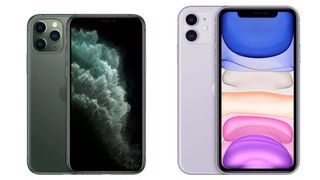
The comparison of iPhone 11 vs iPhone 11 Pro is on many people's minds right now. Originally released at the end of 2019, these phones are now seeing big discounts, including Apple Black Friday deals. Yet they remain some of the best smartphones around.
So if you're looking for a fast and reliable iPhone, but don't want to pay iPhone 12 or iPhone 13 prices, let alone stretch to an iPhone 13 Pro, these slightly older models are very much worth checking out.
There are three iPhone 11 models in total: the mid-range iPhone 11, the premium iPhone 11 Pro, and the larger iPhone 11 Pro Max. In this article, we'll look at all three, and give you the knowledge you need to choose between them.
Once you've made your selection, check out our roundup of the best iPhone 11 deals available today. Alternatively, if you're unsure whether to get an iPhone 11 or iPhone 12, read our comparison of the iPhone 11 vs iPhone 12, too.
iPhone 11 vs iPhone 11 Pro: Design
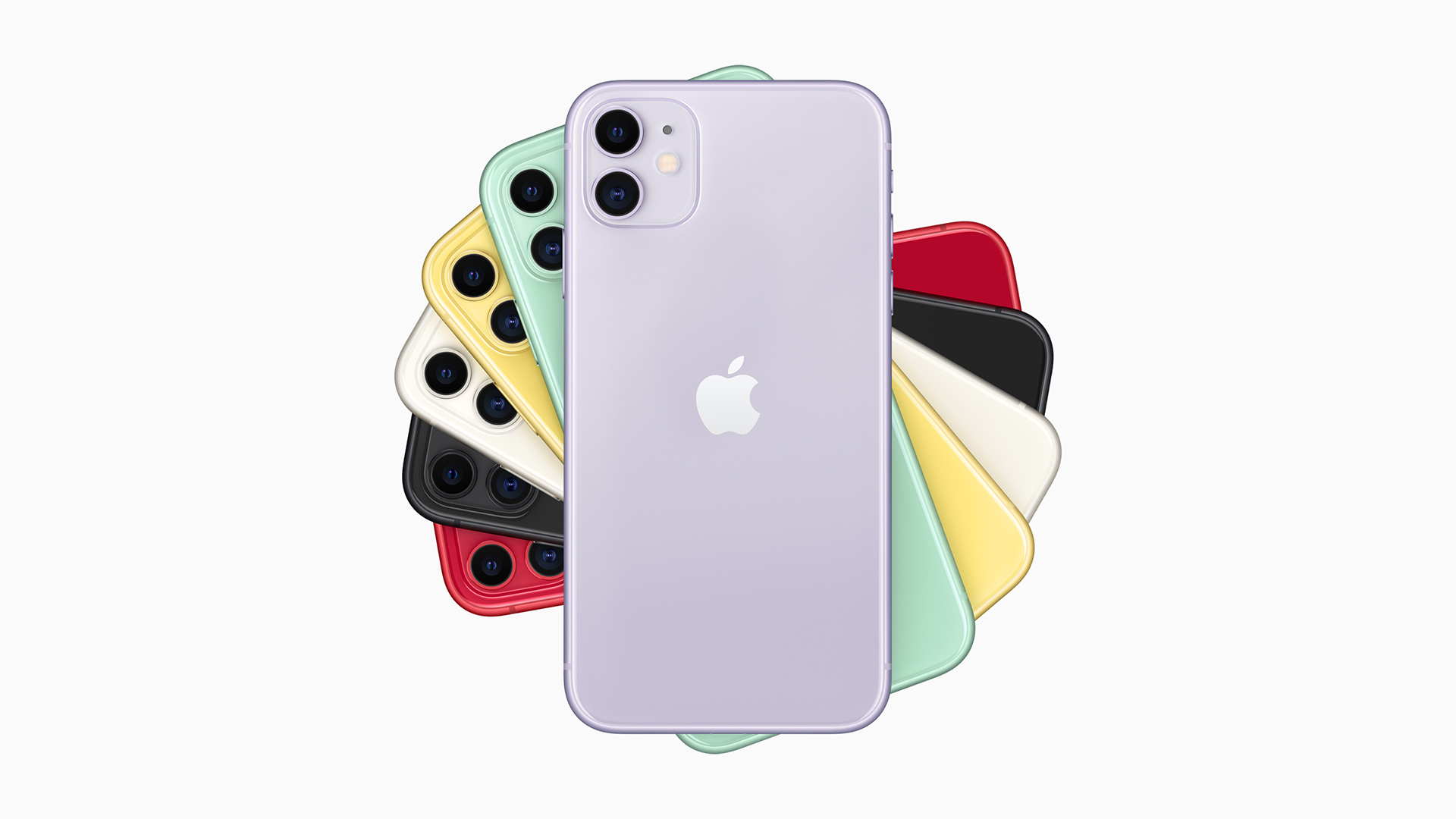
The iPhone 11 and 11 Pro share the same design philosophy, but the finish matches the fact that one is more expensive than the other. In both cases, you've got an all-screen design, with no buttons on the front, and a notch in the display for the Face ID facial recognition camera. You've got curved metal edges, wrapping around to the flat rear of the phone.
However, the iPhone 11 has slightly larger borders between the edge of the screen than the 11 Pro, and has aluminium sides rather than the stainless steel sides of the Pro. The 11 also has a smooth, glossy glass back, while the 11 Pro has a frosted, matt-textured glass back.
The 11 looks and feels like a device made with Apple's usual quality, but there's no denying that the 11 Pro is the more refined version. There's no major practical benefit to this, but the fact remains.
The phones are also available in different colour options: black, white, yellow, green, purple and red for the iPhone 11; black, silver, gold and green for the iPhone 11 Pro.
iPhone 11 vs iPhone 11 Pro: Display
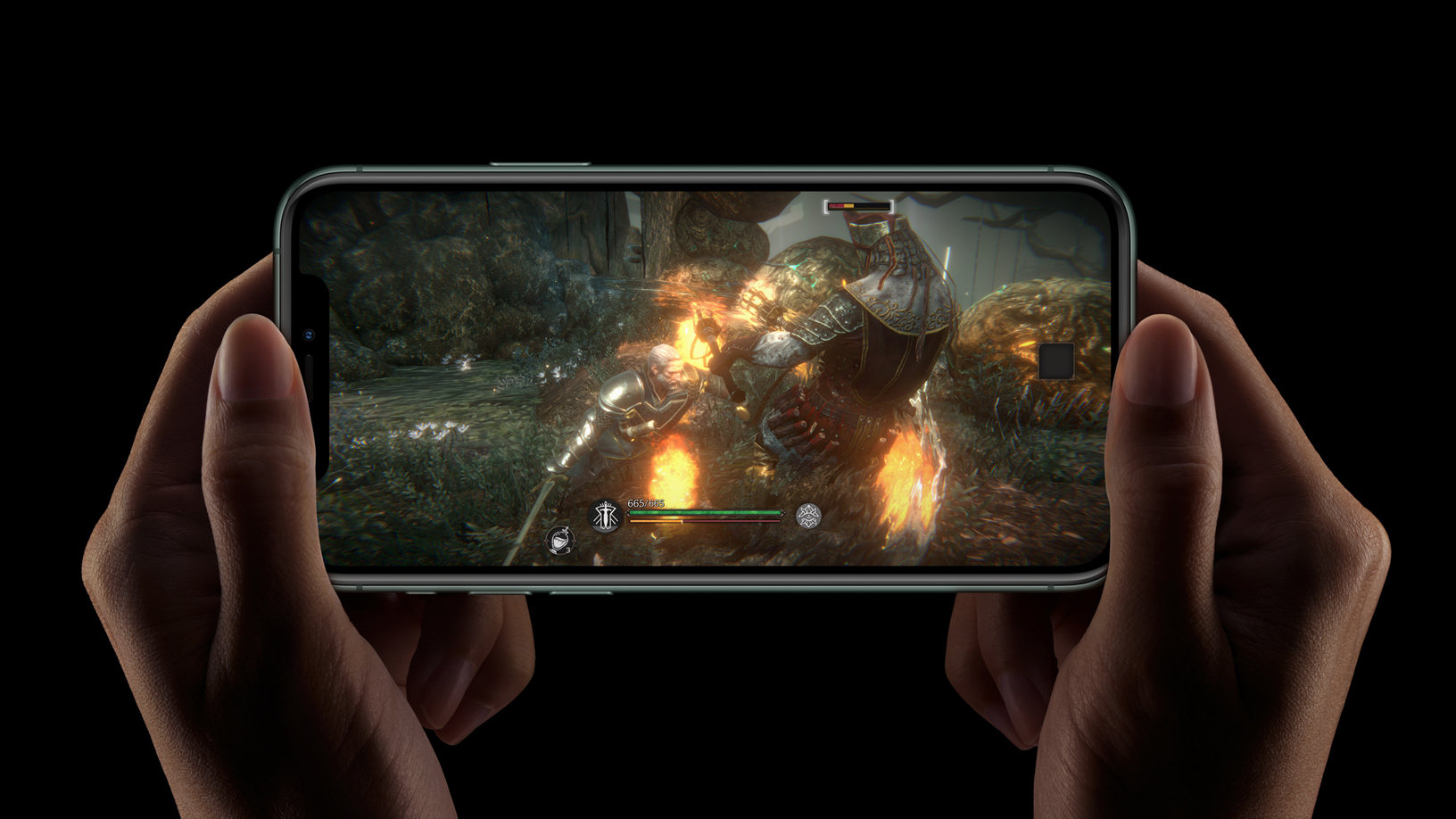
The screen is one of the biggest differences between the 11 and the 11 Pro, thanks to the technology involved as well as the size and resolutions.
Let's start with the sizing. The iPhone 11 comes in just one size: 6.1 inches (which is the same size as the Phone 12, incidentally). The iPhone 11 Pro comes in two sizes: 5.8 inches, and the 6.5 inch iPhone 11 Pro Max. So you can kind of take your pick when it comes to your size preferences, from 'reasonably one-hand friendly' up to 'definitely a two-hander'. That said, remember that the iPhone 11 has wider bezels than the 11 Pro, so the 6.1-inch iPhone 11 and the 6.5-inch iPhone 11 Pro Max are quite close for size in the end.
However, there's more than just size to consider! The iPhone 11 has a resolution of 1,792 x 828, with a pixel density of 326ppi. That's perfectly good, but isn't cutting edge for detail. The 5.8-inch iPhone 11 Pro has a significantly sharper 2,436 x 1125 display at 458ppi. The 6.5-inch Max version has a 2,688 x 1,242 resolution, which again is 458ppi. So, if you want to see things in better detail, you need a Pro iPhone, but once you've gone Pro, the only difference is size, not sharpness.
But the differences aren't done yet. The iPhone 11 has an LCD screen, while the iPhone 11 Pro uses OLED. The 11 Pro's OLED screen suffers slightly from more of a colour cast when viewed at an angle when compared to the 11's LCD screen, but since you mostly look at a phone head on, it's not so much of an issue. More importantly, the 11 Pro screen gives you the giant contrast range that OLED is famous for, from deep deep blacks to bright highlights and vibrant colours.
The 11 Pro's screen is also excellent for HDR, reaching a peak brightness in HDR video of 1,200 nits. The iPhone works with Dolby Vision video, so you get real HDR performance here from the OLED. The iPhone 11 screen doesn't do HDR at all.
The OLED screen appears a little warmer than the LCD screen (or the LCD screen is cooler, if you prefer), but both excel when it comes to colour accuracy. All iPhone 11 models support the P3 colour gamut, and Apple's True Tone tech for adjusting the colour temperature to the ambient lighting of the room you're in.
The iPhone 11 Pro OLED screen is also brighter outside of HDR than the iPhone 11 LCD screen: 800 nits typically on the Pro compared to 625 on the 11. 625 is actually plenty, but for the best visibility outside especially, brighter is better.
iPhone 11 vs iPhone 11 Pro: Battery life
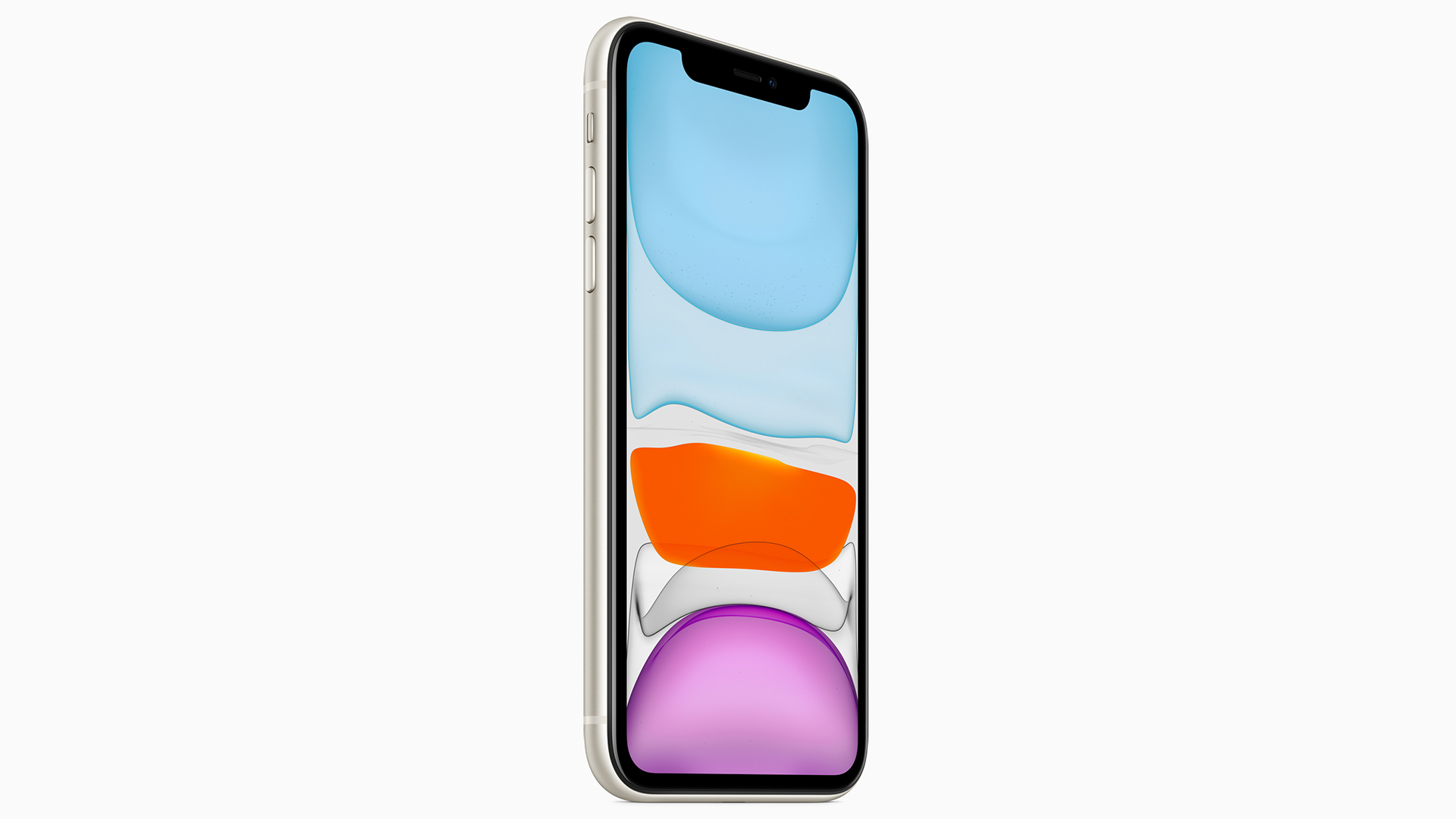
This is nice and easy to follow: the more battery life you want, the bigger your iPhone 11 model needs to be! The smaller iPhone 11 Pro gets the shortest battery life, though it still gives you a day of use under normal conditions.
The iPhone 11 does better though, thanks to combining a bigger body (and so a physically larger battery) with a lower-res screen. You'll get several extra hours of use as compared to the smaller 11 Pro.
But the iPhone 11 Pro Max does even better here, simply by cramming in the most battery capacity. If you're looking at this generation of iPhone and want the most longevity, it's the one to go for – with a careful touch, two days of use is entirely possible.
As with anything, this will vary wildly depending on use. Downloading files over 4G uses lots of battery. Taking a lot of pictures and video uses lots of battery. Editing multi-layer images uses… you get the idea. The 11 Pro Max gives you the most flexibility to do that and still check Facebook before bed.
iPhone 11 vs iPhone 11 Pro: Camera
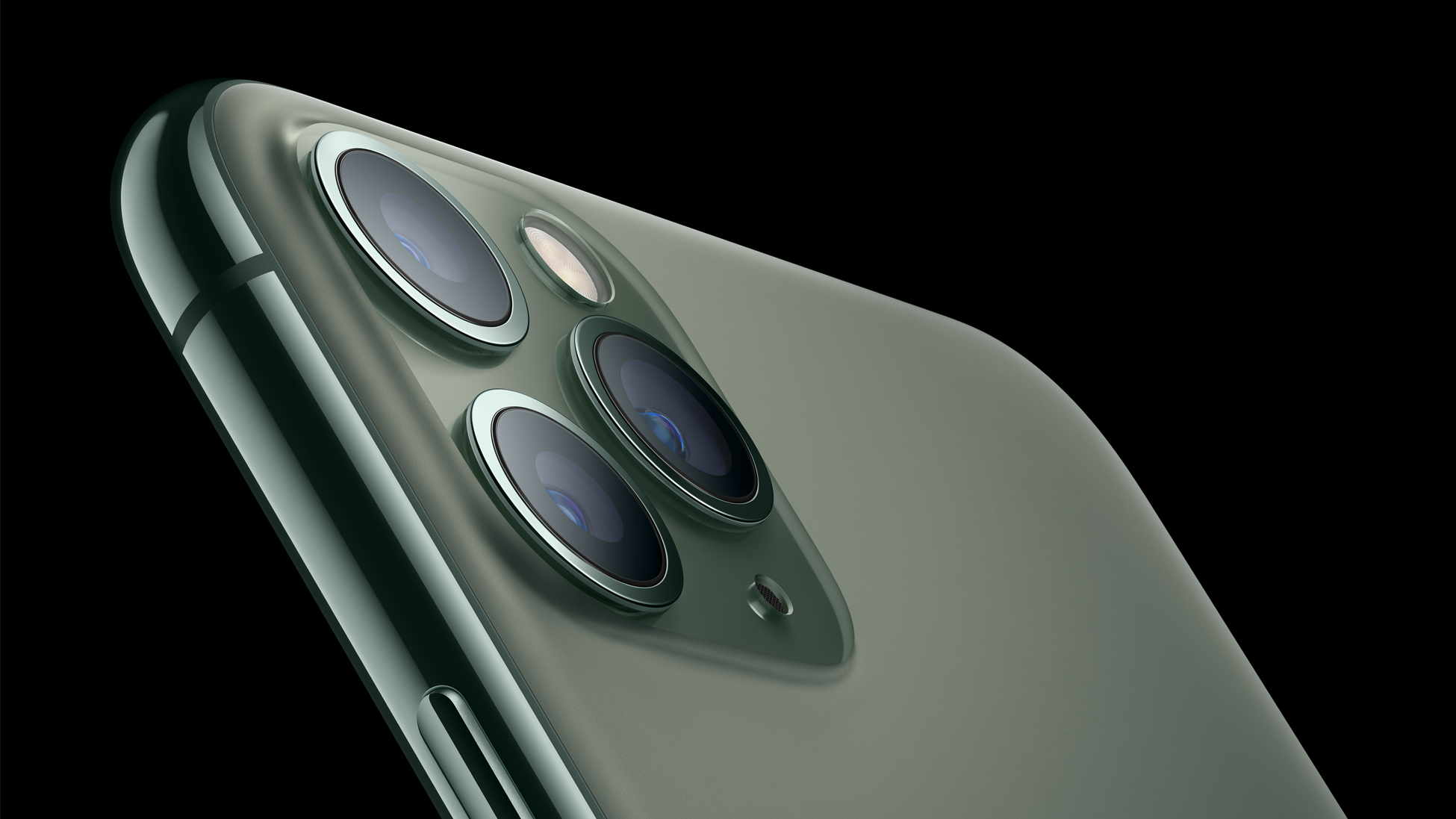
The iPhone 11 has a dual-lens rear camera system, while the iPhone 11 Pro has a triple-lens system. All models include an ultra-wide lens and a wide lens, but the 11 Pro adds a telephoto into the mix.
The thing that makes this comparison easier is that the ultra-wide and wide cameras are the same on all devices. The ultra-wide lens is f/2.4 with a 120° field of view and a 12MP sensor, and it gives you a 0.5x zoom compared to the wide. The wide is f/1.8 with a 12MP sensor again.
You've got loads of features that mix the hardware with software, including Night Mode for taking detailed shots in extremely low light, Portrait Mode to add fake depth of field, and Apple's Smart HDR and Deep Fusion systems mix data from multiple images every time you press the button in order to create sharper and better-exposed shots.
The iPhone 11 Pro models add a telephoto lens, which is a 2x zoom compared to the wide, with a f/2.0 aperture. This also provides the one other notable difference from the iPhone 11, which is that the Pro can take Portrait Mode shots with anything as the subject, because it uses its bigger array of lenses to create a real depth map and detect edges in 3D; the iPhone 11 can only take Portrait Mode shots of people and pets, because it uses software-based detection to detect edges and estimate the depth map.
Both iPhones are capable of taking raw shots too, which some people have done valuable work with, but they aren't that great really – the camera is very much designed around Apple's processing being part of the results. However, the new iPhone 12 Pro will be able to create a new 'ProRaw' file, which outputs a raw photo after Apple applies its HDR and Deep Fusion tech, hopefully giving you the best of both worlds.
The front cameras on iPhone 11 and 11 Pro are identical, too – a 12MP sensor with f/2.2 lens. You can take 4K video at 60fps on any camera of all iPhone 11 models. There's no true HDR video recording, but Apple does use 'Extended Dynamic Range' to better capture difficult exposures in scenes. It's like recording in HDR but outputting to SDR using the extra information captured for a stronger balance.
iPhone 11 vs iPhone 11 Pro: Performance
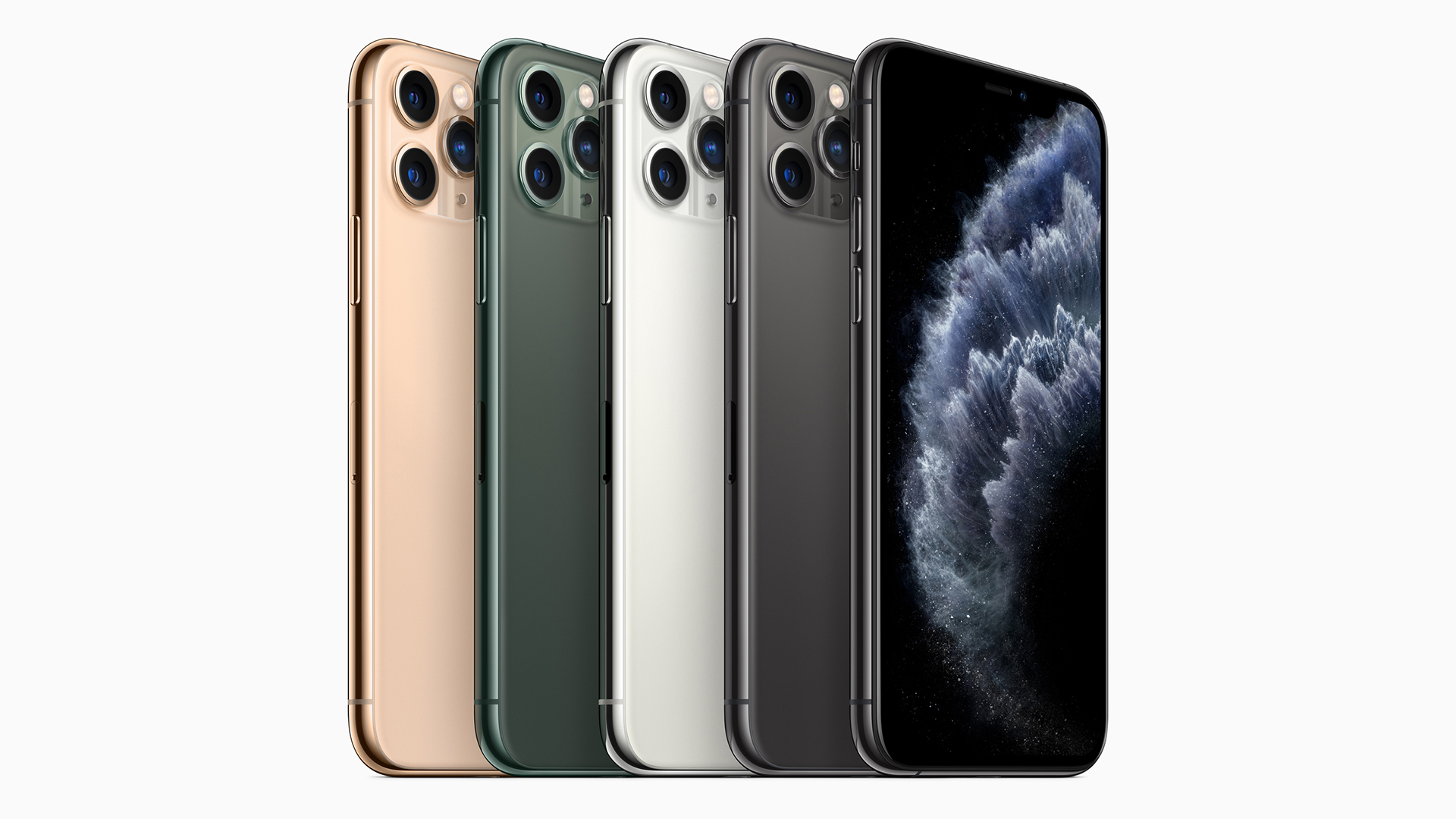
All iPhone 11 models use Apple's A13 Bionic processor, at the same speed, with the same 4GB of RAM. This was the fastest phone processor on the planet when the iPhone 11 models were released. And while it was surpassed by Apple's own A14 processor in iPhone 12, it remains an extremely strong chip, capable of handling effectively anything you can throw at it.
In terms of pure power, it's near laptop-strength, and can deal with 4K video editing, processing large files, opening and editing complex images with real-time changes, plus, y'know, messaging and stuff.
The only limitation you're likely to come across is the RAM, and even then the only problem we've ever seen is that in image editing apps, the maximum number of layers you can have depends on the canvas size – the multiplication of the two can fill the RAM. But you have to be 1) doing much more than just mid-tier photo edits, and 2) slightly bonkers to want to get that involved on a phone screen.
iPhone 11 vs iPhone 11 Pro: Conclusion
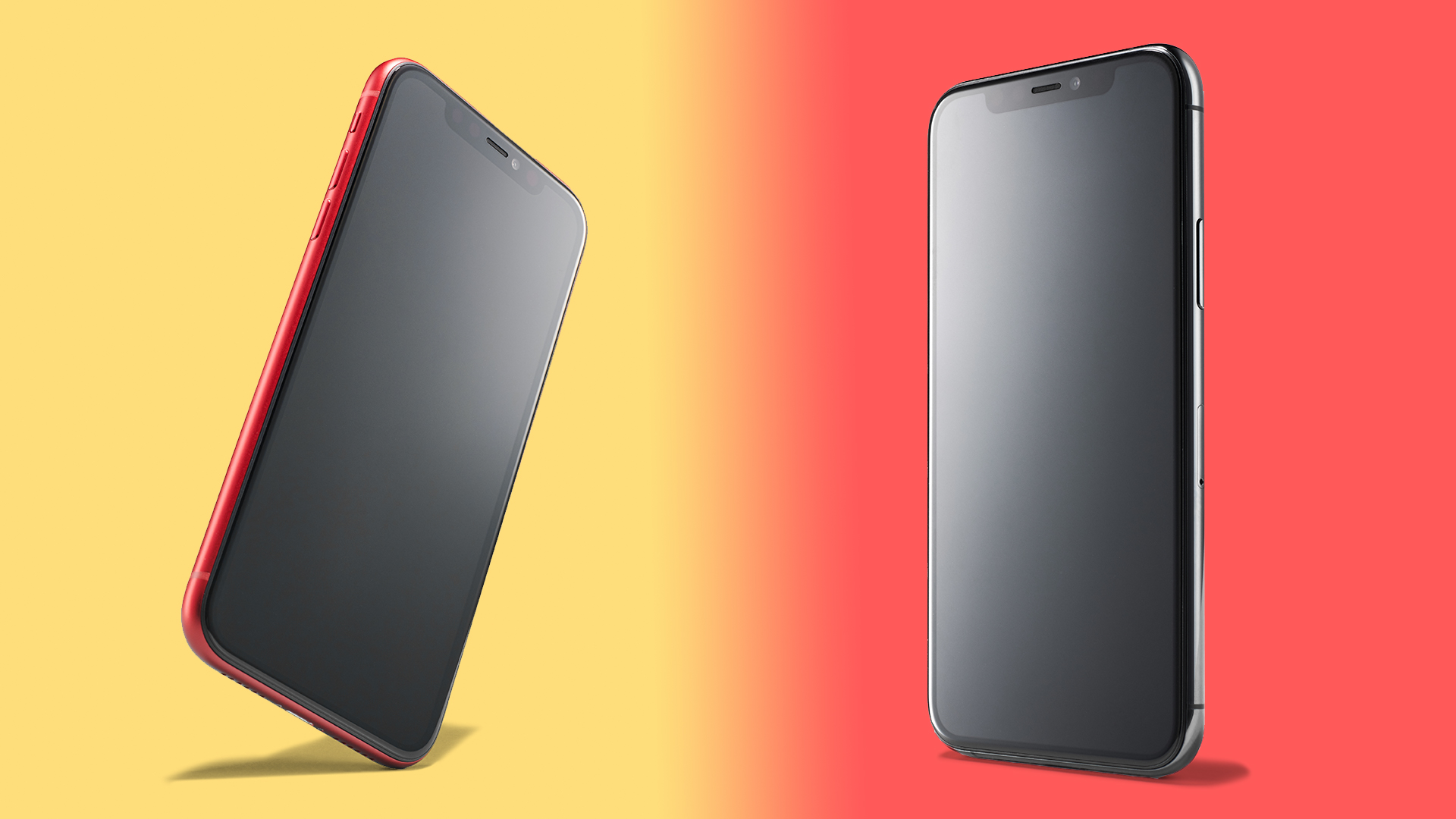
When it comes to pure capability, there's no doubt that the iPhone 11 Pro is the better option for creatives, thanks to its more flexible triple-lens camera system and OLED screen that's superior for brightness and sharpness (and, if you choose the iPhone 11 Pro Max, it's the biggest screen of the iPhone 11 models). The Max also offers the best battery life of the three, which is important for a day of intensive work.
However, both iPhone 11 Pro options are a lot more expensive, and given that the iPhone 11 offers the same colour accuracy on the screen, is just as capable at running apps and opening large files for viewing, and offers better battery life than the smaller 11 Pro, it's still a really great buy. Also consider that the iPhone 11 Pro is no longer in production, which means a new, factory-sealed handset may be harder to come by – if you care about that, of course.
We think most people will choose which to go for based on the budget they have in mind, and in all cases you'll get a powerful phone with excellent screen quality and high-quality cameras. See below for today's best prices on the iPhone 11, iPhone Pro and iPhone Pro Max.
Read more:
- Here's a leak of the iPhone 13
- Check out all of the best camera phones
- iPhone 12 vs iPhone 12 Pro: Which one is right for you?
Matt has been testing technology for over a decade, working in specialist Apple publications as well general technology and creative journalism. By day, you can find him covering TV, audio, smart home gear and more at T3.com, as Home Tech Editor. By night, he's probably updating or pairing or installing some new piece of technology in the quest for the perfect setup.
Related articles
How To Airplay Iphone To Macbook Pro
Source: https://www.creativebloq.com/features/iphone-11-vs-iphone-11-pro
Posted by: pickneywastione.blogspot.com

0 Response to "How To Airplay Iphone To Macbook Pro"
Post a Comment